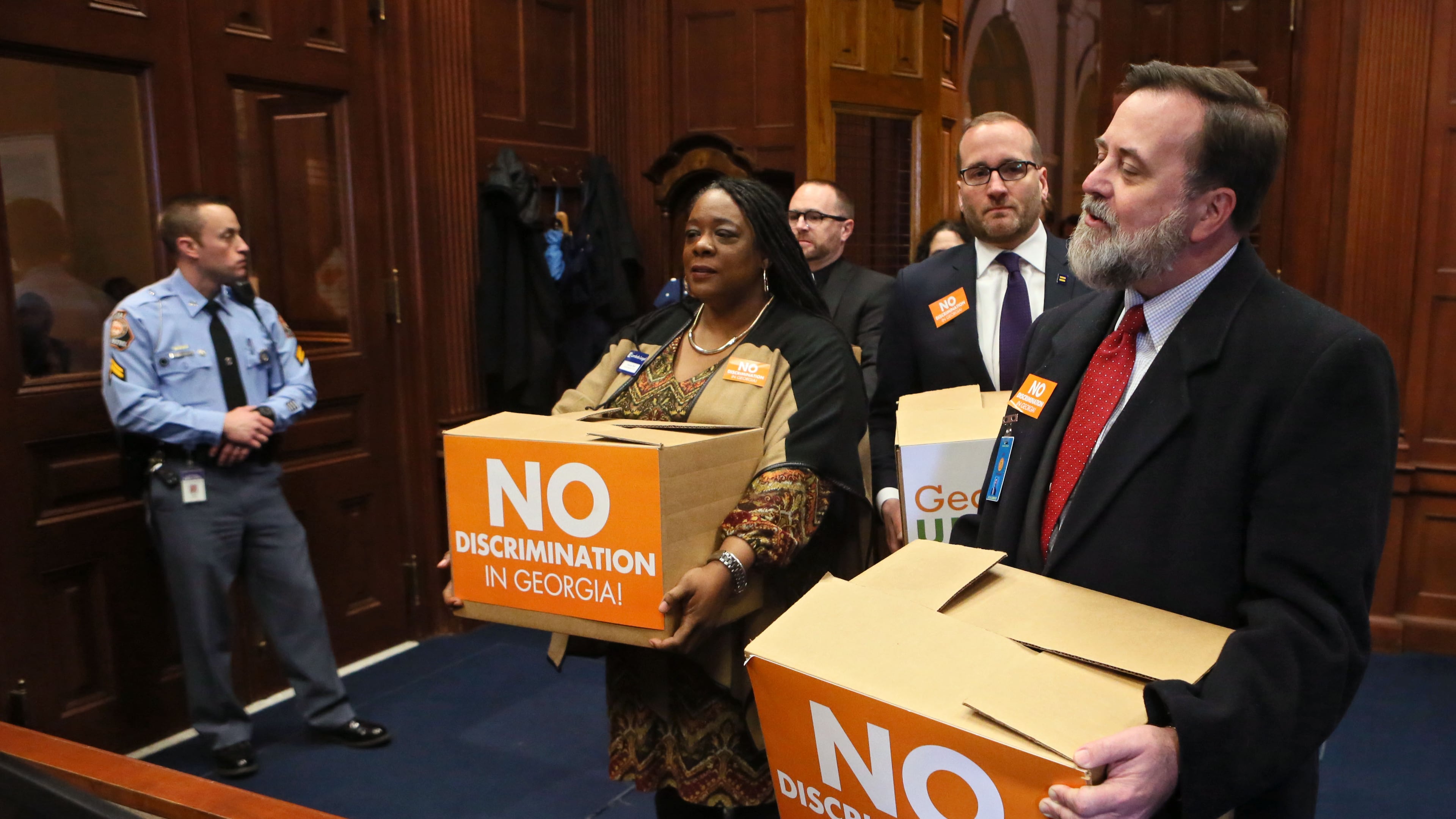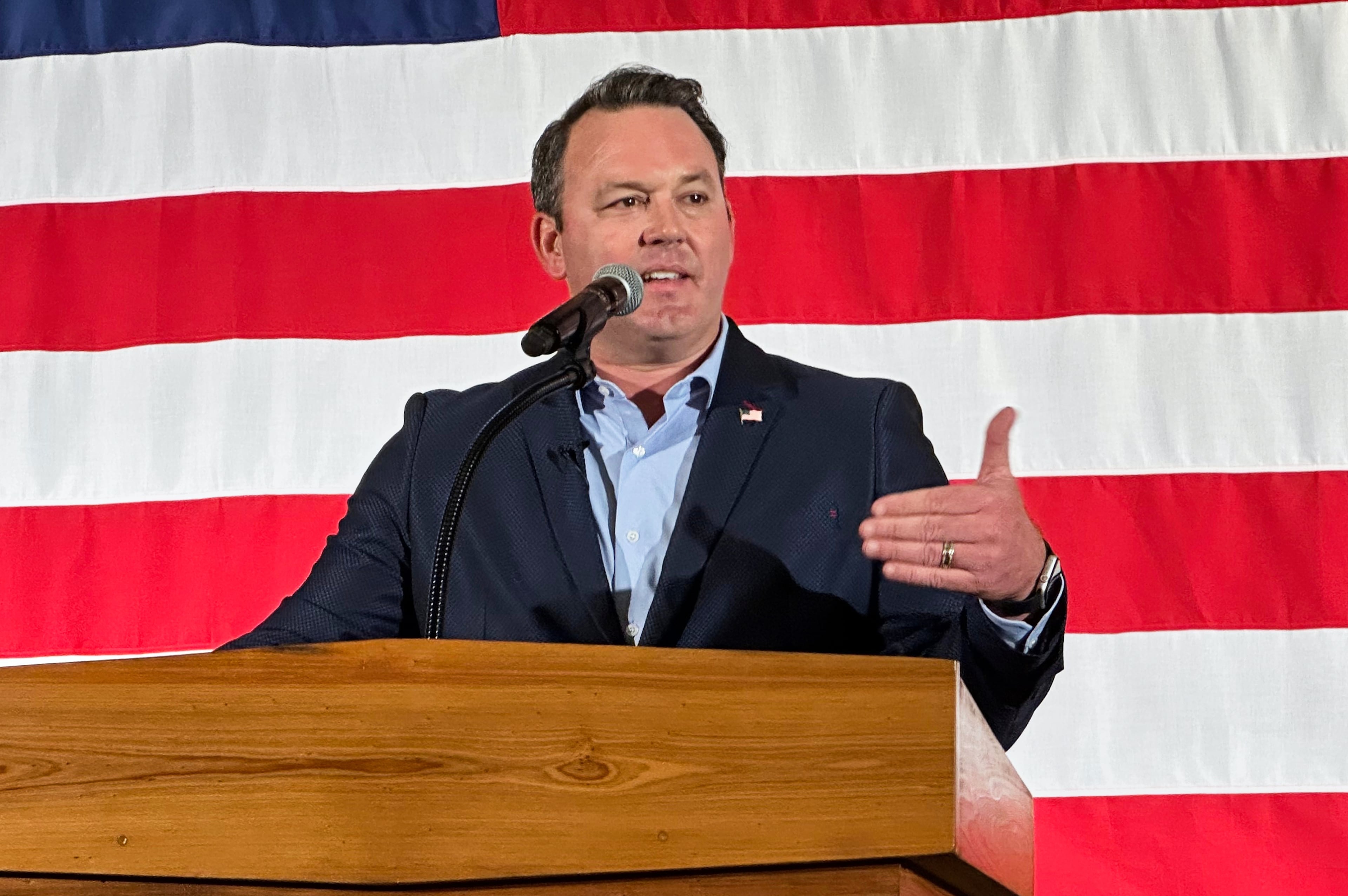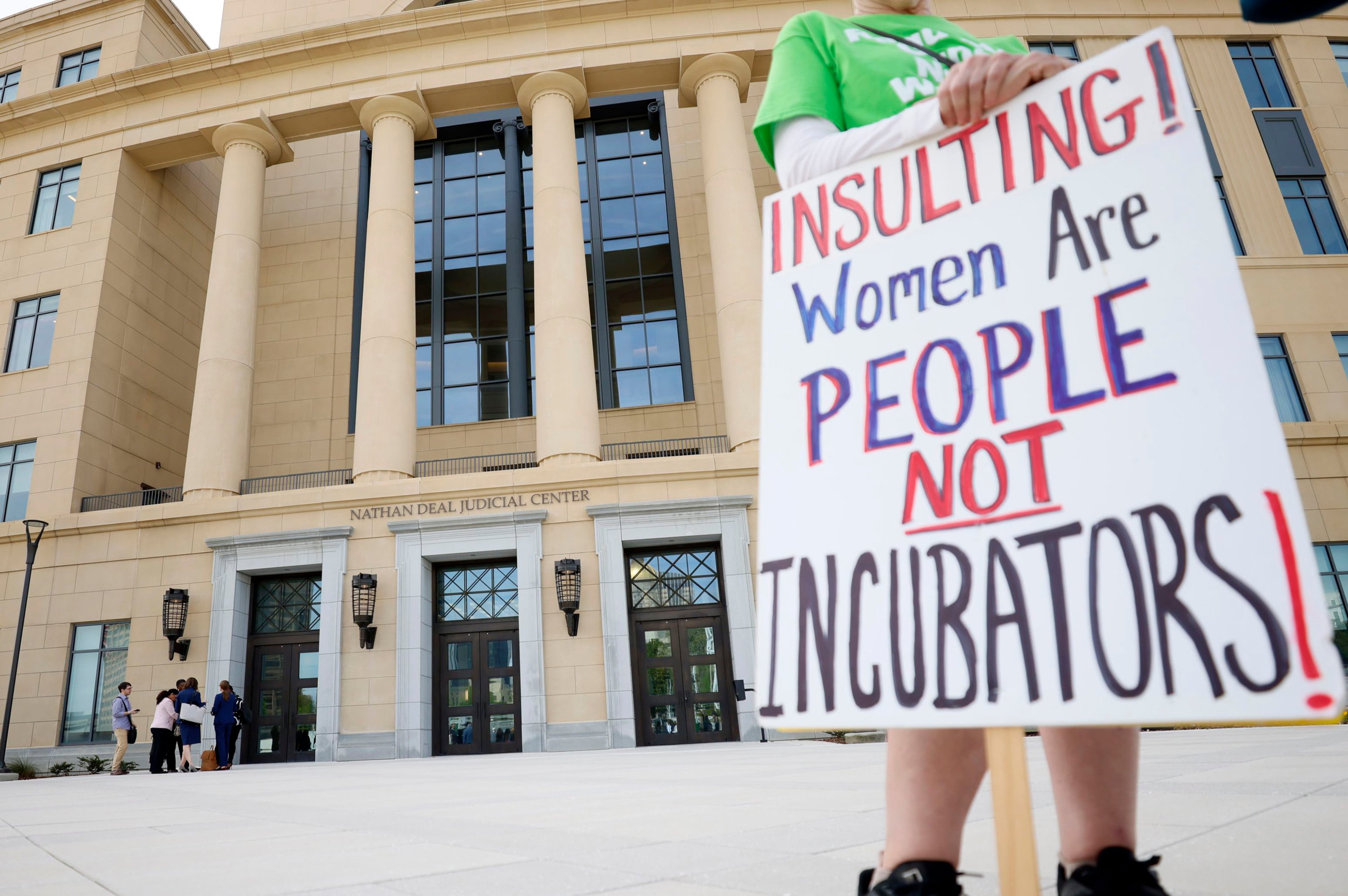Why Hollywood didn’t publicly fight Georgia’s ‘religious liberty’ bill

Nearly a decade ago, several entertainment giants were not happy with Georgia.
Lawmakers passed a “religious liberty” bill in 2016 that critics said could allow businesses to discriminate against LGBTQ+ Georgians. As the measure made its way to the governor’s desk, The Walt Disney Co., its Marvel subsidiary and AMC Networks made it clear: reject the bill or we will pull productions from the state.
Hollywood wasn’t alone. Other business titans threatened Georgia, too.
Amid this pushback, then-Gov. Nathan Deal vetoed the measure. So the entertainment companies stayed. And the years that followed were the busiest in history for film and television production in Georgia.
Last month, another version of this divisive bill was signed into law, with little, if any, open criticism from these entertainment companies. The legislation, Senate Bill 36, limits the government‘s ability to pass or enforce laws that conflict with religious beliefs.
Representatives for Disney, Marvel and AMC did not respond to repeated requests for comment about their thoughts on the measure.
What changed to turn these fierce critics into quiet bystanders? Major shifts in the entertainment industry and the political sphere at large over the past decade that have led studios, streamers and producers to tighten their budgets and their lips.
“We’re in a different political moment in terms of what kind of power and influence [they] might be able to wield,” said Kate Fortmueller, an associate professor in Georgia State University’s School of Film, Media and Theatre, referring to Hollywood talent and executives.

No longer ‘peak TV’
The film and television industry of today is very different from the one that existed when Deal vetoed the religious liberty measure in 2016. During that era, the U.S. was in the midst of what was called “peak TV,” a period of time when an unprecedented number of scripted television projects were being made, Fortmueller said. This peak would reach even greater heights as new streaming companies entered the equation and began to build out their content libraries.
Budgets were high and all types of projects were being greenlit. Production boomed in Georgia. In fiscal year 2015, production companies spent $1.7 billion in the state. By 2019, they doubled that. In 2022, they spent $4.4 billion.
There was a lot of money going around and producers had more flexibility in how and where they could spend it, Fortmueller said. Productions would eventually pull out of Georgia for other divisive legislative matters, such as the “heartbeat bill,” which effectively banned abortion after six weeks. At least two projects left the state after Gov. Brian Kemp signed it into law in 2019: Amazon Prime Video series “The Power” and feature film “Barb and Star Go to Vista del Mar.”
But what goes up must come down. The level of production was not sustainable, especially as interest rates climbed and inflation soared. A pair of bruising Hollywood strikes dampened production.
Now, the industry is in a period of belt-tightening. Pulling out of Georgia, which offers the country’s most generous film incentive, might not be an option for a cash-strapped production company. It may be the only option they have to shoot in the United States, if they’re lucky enough to get greenlit.

Ethan Tussey, a media scholar and associate dean at Georgia State, said entertainment executives and creative labor are more preoccupied with establishing the new financial normal than flexing their influence on state legislatures, especially those that are providing economic relief in the form of tax incentives.
“It‘s post-pandemic, it‘s post-strike, and we’re looking for the new normal,” Tussey said. “In a trough of production, people are less likely to offend as they look for the work that‘s available.”
But eyes have also been on other legislative matters. Two bills designed to update California’s film and television production incentive and make them more competitive with other states and countries have been making their way through the Golden State’s legislature. One will boost the tax credit to 35%, up from 20 to 25%. This surpasses Georgia’s incentive, which sits at 30%. More than 100,000 letters have been sent to state lawmakers in support of the bills, according to the Los Angeles Times.

Plus, the industry is also dealing with the fallout of the wildfires that destroyed more than 25,000 acres of property and essential infrastructure in Southern California. Lobbying against a religious liberty bill might not be a top priority for actors, below-the-line workers and studio executives when they have lost their homes.
“It‘s not that these types of things necessarily went unnoticed, but maybe they did, you know?” Fortmueller said. “People living and working in Los Angeles have a lot to handle.”
Playing nice
That‘s not to say there wasn’t opposition. Democrats at the Gold Dome opposed the measure. The Georgia Chamber of Commerce, under which state film lobbying group the Georgia Screen Entertainment Coalition operates, and Metro Atlanta Chamber both opposed SB 36.
“In continuing with our long-standing position, we oppose efforts, including SB 36, that would undermine the state’s strong reputation we have built together,” said both chambers in a joint statement.
But things have also changed in the broader political sphere. President Donald Trump’s return to power ignited feuds over other issues, such as transgender restrictions and immigration crackdowns, which eclipsed some of the controversy over the religious liberty bill during this legislative session.
Trump has threatened criminal and civil investigations into companies pursuing diversity, equity and inclusion programs. Federal Communications Commission Chairman Brendan Carr reinstated bias complaints aimed at ABC, CBS and NBC once dismissed by previous FCC leadership as being “at odds with the First Amendment.”
The new administration has brought with it a punitive environment around free speech, said Andrea Young, the executive director of the American Civil Liberties Union of Georgia.
“There is somewhat of a chilling attitude coming from people in power around free speech issues,” Young said.
Staying low on divisive issues might be a strategy for entertainment companies navigating the early days of the new administration. This is especially true for those in the middle of mergers and acquisitions, which must be approved by the government, Tussey, the Georgia State professor, said.
There’s Paramount Global, the parent of CBS News, which is merging with Skydance Media, and Verizon, which is acquiring Frontier Communications. At the end of Sunday’s broadcast of “60 Minutes” on CBS, correspondent Scott Pelley said the program’s executive producer Bill Owens resigned last week after Paramount placed scrutiny on the program’s editorial processes. This scrutiny occurred as Paramount tried to move past a lawsuit filed against CBS News by Trump and navigate its merger with Skydance.
“If you’re not in the good graces with the government, you’re not going to be able to do the maneuvers you need to establish the new normal,” Tussey said.
Another element to consider is whether these companies view boycotting the state as the best and most impactful option to oppose this bill. This is a situation where it‘s unclear if any kind of action would change the result, Young said. More than a dozen other states have adopted similar legislation, including those with film incentives, such as New Mexico.
“I think that the basic position of most people who care about these issues in Georgia — about religious freedom, free speech, the right to protest and so forth — is that we would [prefer] corporations or other entities that care about these issues to stay here and fight with us for a more robust democracy, rather than boycott,” Young said.



